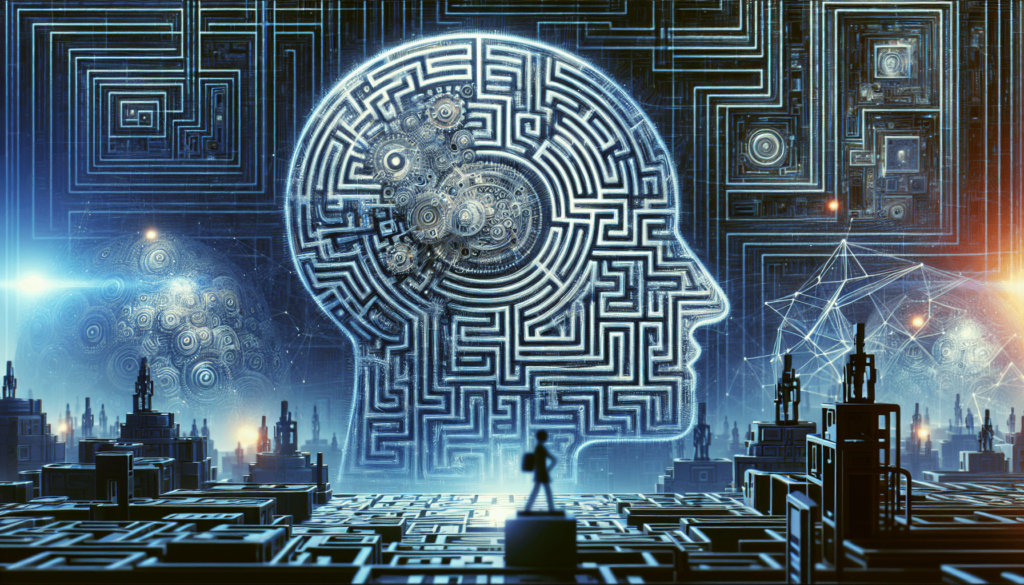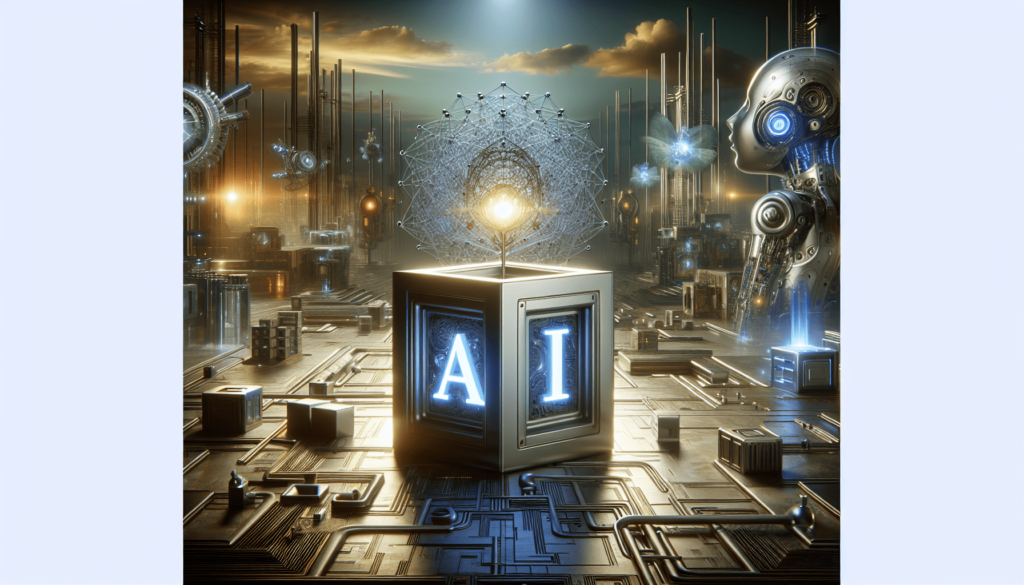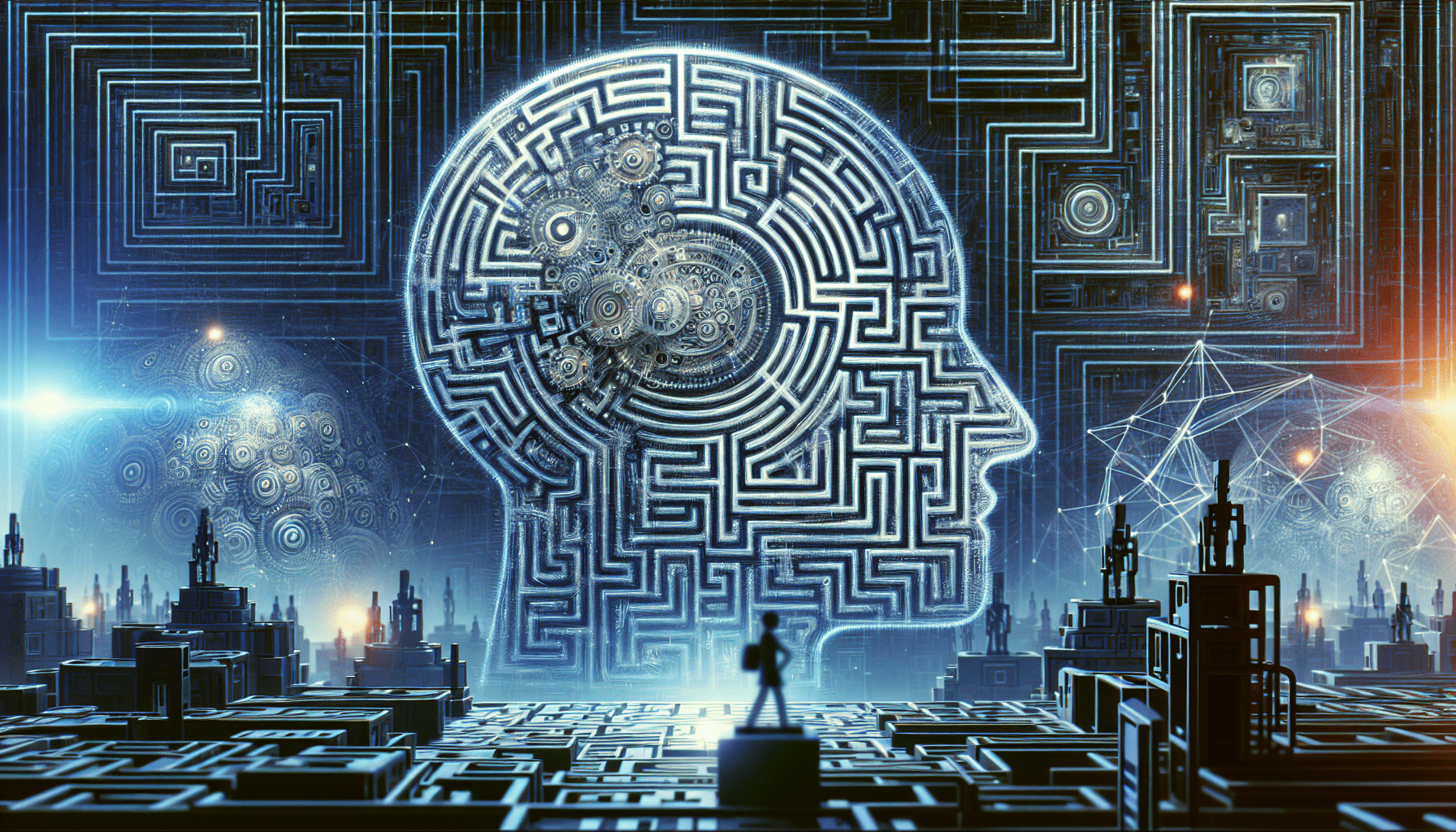AI has made significant advancements in recent years, revolutionizing the way we live and work. However, with all its incredible capabilities, it is important to acknowledge that AI does have its limitations. From the inability to understand context to the potential for biased decision-making, this article explores some of the key limitations of AI that we should be aware of. So, whether you are a technology enthusiast or simply curious about the potential drawbacks of AI, read on to discover more about the limitations that come with this cutting-edge technology.
Processing Power
Limited processing capabilities
Artificial intelligence (AI) has made significant strides in recent years, but one of its major limitations is its limited processing power. While AI systems are becoming increasingly sophisticated, they still pale in comparison to the processing capabilities of the human mind. This means that AI systems may take longer to analyze and process complex information, potentially leading to delays or inefficiencies in decision-making processes.
High energy consumption
Another limitation of AI is its high energy consumption. AI systems, especially those that rely on deep learning and neural networks, require substantial computational power to function effectively. This high energy consumption not only leads to increased costs but also raises concerns about the environmental impact of AI. As we strive for more sustainable technologies, finding ways to improve the energy efficiency of AI systems becomes crucial.
Data Limitations
Insufficient training data
AI models rely heavily on data, and one of the major limitations is the availability and quality of training data. Insufficient or poor-quality training data can result in AI systems that are less accurate, less reliable, and more prone to errors. This is particularly evident in areas where data may be limited or difficult to collect, such as in certain medical conditions or rare events. Without access to a sufficient amount of diverse and high-quality data, AI systems may struggle to generalize and make accurate predictions.
Biased or incomplete datasets
Another challenge related to data limitations is the presence of biased or incomplete datasets. AI systems are trained on historical data, which may reflect biases or inequalities present in society. If these biases are not addressed, AI systems can perpetuate and amplify existing inequalities. For example, facial recognition systems have been shown to have higher error rates for people with darker skin tones, as they were trained on predominantly lighter-skinned individuals. These limitations emphasize the need for careful data collection and rigorous evaluation to ensure fairness and avoid discrimination.

Lack of Contextual Understanding
Difficulty understanding emotions
While AI technology has made significant advancements in natural language processing, understanding emotions remains a challenge. AI systems often struggle to accurately interpret and respond to human emotions, which can hinder their ability to provide appropriate and empathetic interactions. This limitation becomes particularly apparent in customer service or support scenarios where understanding and responding to emotional cues is crucial.
Inability to interpret sarcasm or humor
In addition to emotions, AI systems also struggle to interpret sarcasm or humor, which are complex forms of communication requiring context and cultural knowledge. Sarcasm, in particular, can be challenging for AI systems as it often involves saying the opposite of what is meant. This limitation can lead to misunderstandings and misinterpretations of user inputs, resulting in ineffective or even comical responses from AI systems.
Ethical Considerations
Lack of moral reasoning
One of the most significant ethical considerations surrounding AI is its lack of moral reasoning. AI systems lack the ability to make decisions based on ethical considerations or moral values. They operate based on algorithms and patterns, which means they may prioritize efficiency or profitability over other social or ethical considerations. This limitation raises important questions about the responsibility and accountability of AI systems and the potential consequences of relying solely on machine-driven decision-making.
Potential for bias and discrimination
Another ethical concern is the potential for bias and discrimination in AI systems. As mentioned earlier, AI systems are trained on historical data, which may perpetuate existing biases and inequalities. This can lead to discriminatory outcomes in areas such as hiring, lending, or criminal justice. Bias in AI systems is a pressing issue that requires careful attention to ensure fair and unbiased decision-making and to protect against the reinforcement of systemic injustices.

Limited Creativity
Inability to generate truly original ideas
While AI systems can excel at tasks that involve pattern recognition and optimization, they still struggle with true creativity. AI systems operate based on pre-defined algorithms and rules, which limits their ability to generate truly original ideas. While they can assist in creative processes, such as generating music or art, their output is often a combination or imitation of existing patterns rather than something truly novel and groundbreaking.
Difficulty in adapting to new situations
Another limitation of AI’s creative abilities is its difficulty in adapting to new situations. AI models are typically trained on specific datasets and may struggle when faced with scenarios or data outside their training scope. This lack of adaptability inhibits AI’s ability to creatively solve novel problems or navigate unfamiliar situations. As a result, human intervention and guidance are often required to ensure that AI systems can effectively respond to new challenges.
Lack of Common Sense
Struggles with common-sense reasoning
Common sense is something we often take for granted as humans, but it poses a significant challenge for AI systems. While AI can excel at tasks that require extensive data analysis, it often lacks the common-sense reasoning abilities that humans naturally possess. AI systems may struggle with basic reasoning tasks, such as understanding cause and effect relationships or making intuitive judgments based on contextual information. This limitation hampers their ability to perform tasks that require a deeper understanding of the world and its intricacies.
Difficulty in making logical inferences
In addition to common-sense reasoning, AI systems also face challenges in making logical inferences. While they can process vast amounts of data and identify patterns, their ability to reason deductively or make logical leaps is limited. This limitation becomes evident when AI systems encounter ambiguous or incomplete information and are asked to draw conclusions or make decisions. Without human intervention or explicit rules, AI may struggle to navigate these scenarios and arrive at accurate or logical outcomes.
Security Risks
Vulnerability to hacking and manipulation
As AI becomes more integrated into various domains, its vulnerability to hacking and manipulation becomes a significant concern. AI systems can be exploited or manipulated by malicious actors who seek to alter their behavior or gain unauthorized access to sensitive information. The complexity and interconnectedness of AI systems make them potential targets for cyberattacks, further emphasizing the need for robust security measures and ongoing monitoring to mitigate these risks.
Potential for malicious use
Beyond external threats, there is also the potential for AI systems to be used for malicious purposes. As AI grows more powerful, the risks associated with weaponizing AI or employing it for harmful activities increase. AI-enabled drones, autonomous weapons, or AI-powered cyberattacks are all areas of concern that require careful consideration and regulation to ensure that AI is utilized in a manner that aligns with ethical and humanitarian principles.
Human Dependency
Need for human supervision and intervention
Despite advances in AI, human supervision and intervention remain necessary for the effective functioning of AI systems. AI systems may excel at automation and analysis, but they still rely on human oversight to ensure that their outputs are accurate, unbiased, and aligned with human values. Human intervention is vital during the training and testing phase of AI models to prevent errors, correct biases, and address any unforeseen consequences that may arise.
Inability to replace human intuition and judgment
Intuition and judgment are human qualities that AI systems struggle to replicate. While AI may excel at processing large amounts of structured data, it often lacks the innate understanding and intuition that humans possess. Human judgment involves a combination of experience, empathy, and common sense, allowing us to make complex decisions in nuanced or ambiguous situations. The inability of AI to replicate this level of intuition means that human input and oversight continue to be invaluable in decision-making processes.
Lack of Empathy
Inability to understand human emotions
Empathy, the ability to understand and share the feelings of others, is a fundamental human trait that AI systems currently lack. While AI systems may be programmed to respond with pre-determined empathetic or sympathetic statements, their understanding of emotions is mostly superficial. This limitation makes it challenging for AI to provide genuine emotional support or engage in meaningful human interactions. The absence of true empathy in AI systems can limit their effectiveness in roles that require emotional intelligence, such as counseling or therapy.
Difficulty in providing emotional support
Related to the previous point, AI systems also face challenges in providing effective emotional support. While they may be able to recognize certain emotions based on textual or vocal cues, AI systems often struggle with the complexity and nuance of human emotions. Emotional support requires a deep understanding of an individual’s specific emotional needs, which AI systems may not be fully equipped to provide. Human empathy and understanding remain vital in situations that require genuine emotional support and connection.
Regulatory Challenges
Legal and regulatory frameworks
The rapid development and deployment of AI technology pose challenges for existing legal and regulatory frameworks. Ethical and privacy concerns, bias and discrimination, liability, accountability, and transparency are just a few of the issues that need to be addressed through robust and adaptive regulations. Developing laws and regulations that can keep pace with AI advancements while ensuring the protection of human rights and societal values is a complex task that requires collaboration between policymakers, industry experts, and ethicists.
Privacy concerns and data protection
AI systems often rely on vast amounts of personal data to operate effectively. This raises significant concerns regarding privacy and data protection. AI systems must collect, store, and analyze personal data in a responsible and secure manner, ensuring that individuals’ privacy rights are respected. Additionally, there is a need for transparency and informed consent in data collection and usage, as well as mechanisms for individuals to exercise control over their personal data. Striking a balance between the potential benefits of AI and individuals’ privacy rights is crucial in maintaining trust and societal acceptance of AI technology.
In conclusion, while AI has made remarkable progress, it is essential to acknowledge its limitations. From processing power and data availability to ethical considerations and human dependency, AI systems still struggle with various challenges. The ongoing development of AI technology must continue to address these limitations to ensure that AI systems are ethical, unbiased, secure, and able to enhance human lives without compromising essential aspects such as empathy, common sense, and creativity. By recognizing and actively working to overcome these limitations, we can unlock AI’s full potential and harness its power for the betterment of society.
